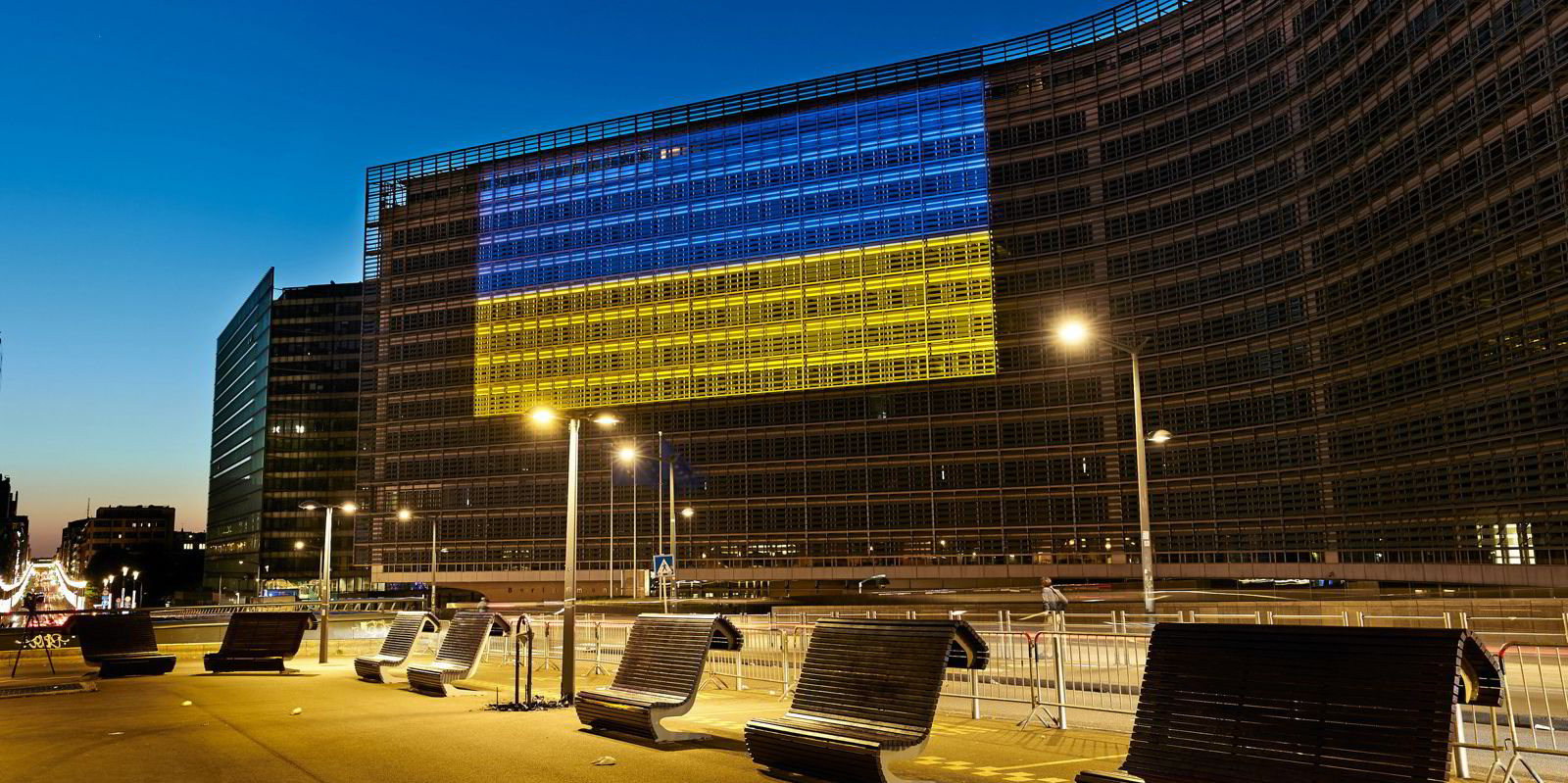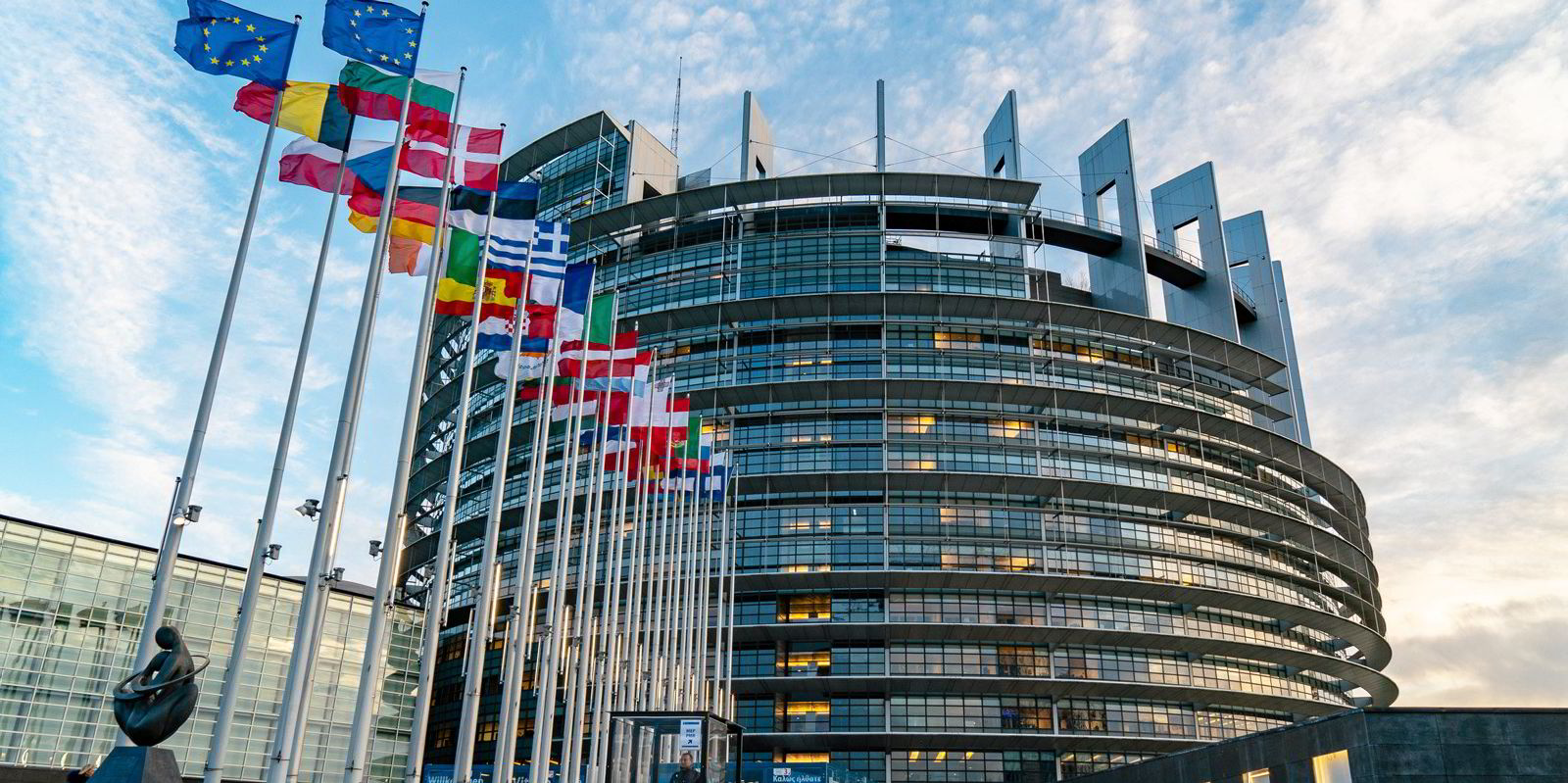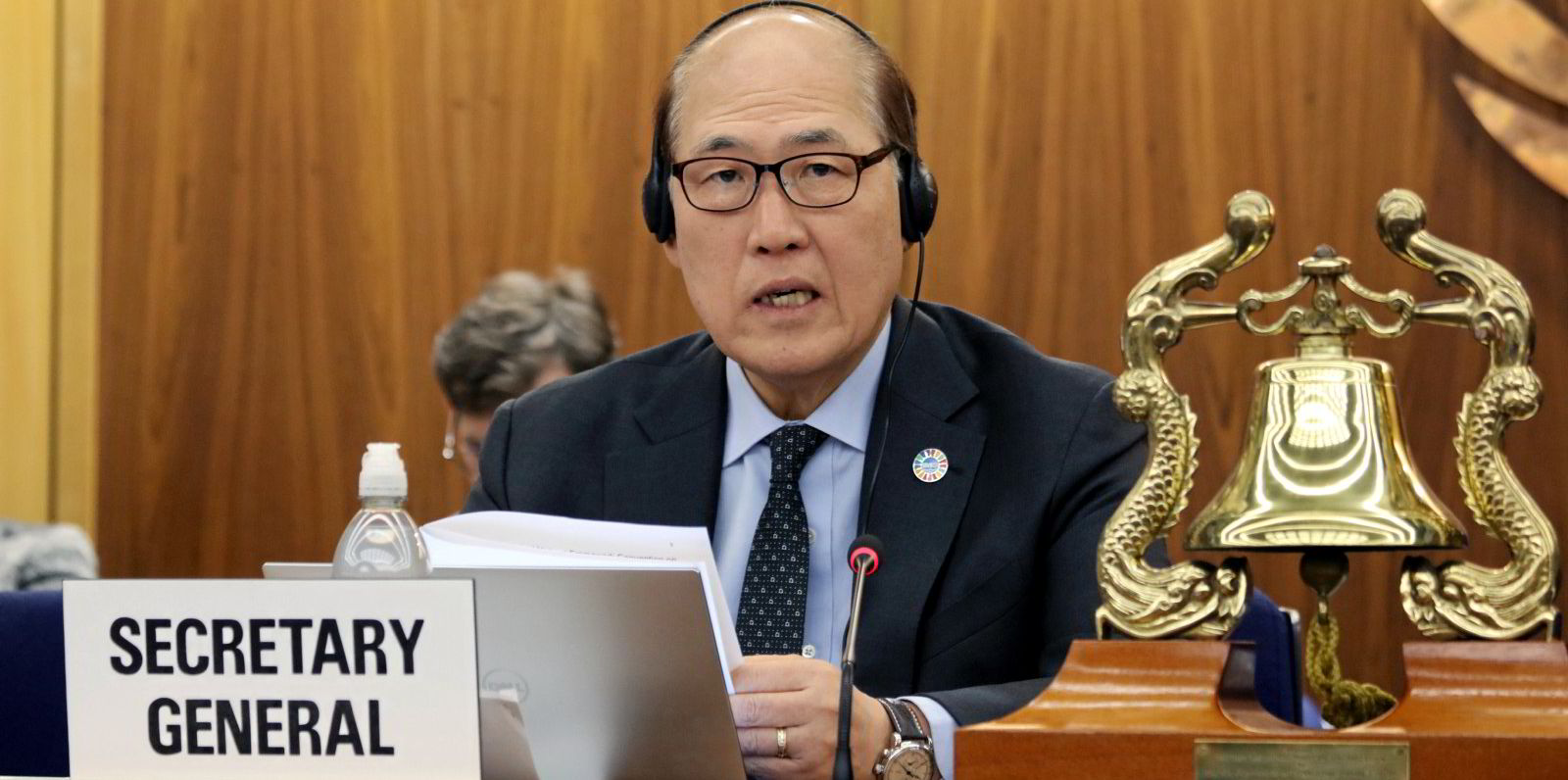Negotiations among European Union (EU) officials to revise the bloc’s emissions trading scheme finished successfully on Sunday.
As expected, the final round of talks between the European Parliament, the European Commission and national member states ushered into a general package deal for the European Union’s Emissions Trading System (EU ETS) that covers all of Europe’s industrial sectors.
A side deal on shipping, arrived at earlier this month and reported on by TradeWinds, was therefore left intact.
This means that the world’s first scheme to put a price on maritime greenhouse gas emissions will go ahead as planned — phased into the bloc’s emissions trading starting in 2024, with full roll-out in 2026.
No text on the details of the deal has been officially released yet.
According to several sources closely following the talks, however, it obliges ships’ owners and operators in 2025 to buy rights for 40% of verified emissions reported in the previous year. In 2026, the percentage rises to 70% and from 2027, all emissions will be covered.
Half of all emissions from trips between the EU and third countries are to be exempted.
The deal furthermore earmarks at least €1.5bn ($1.59bn) of maritime-related emissions trading revenue to fund research into shipping decarbonisation.
Under the text, emission monitoring and trading will be extended beyond CO2 to include methane and nitrous oxide as well.
General cargo ships and offshore vessels between 400 gt and 5,000 gt will be covered by the EU’s monitoring, reporting and quantification system known as EU MRV from 2025.
By the end of 2026, the European Commission, which proposes and oversees the implantation of EU law, is set to present a report on whether to include those ships in the emissions trading scheme as well.
In the text, the EU is giving itself some rope to harmonise its own carbon pricing regulation with what will be eventually adopted at IMO level.
A clause sets out that shipping’s inclusion into the EU ETS will be “revisited” after implementation of the IMO measure.
On Friday, an IMO committee saw advancement toward agreeing on a levy on shipping’s greenhouse gas emissions and a companion measure to adopt fuel standards that would help ratchet down carbon intensity.





